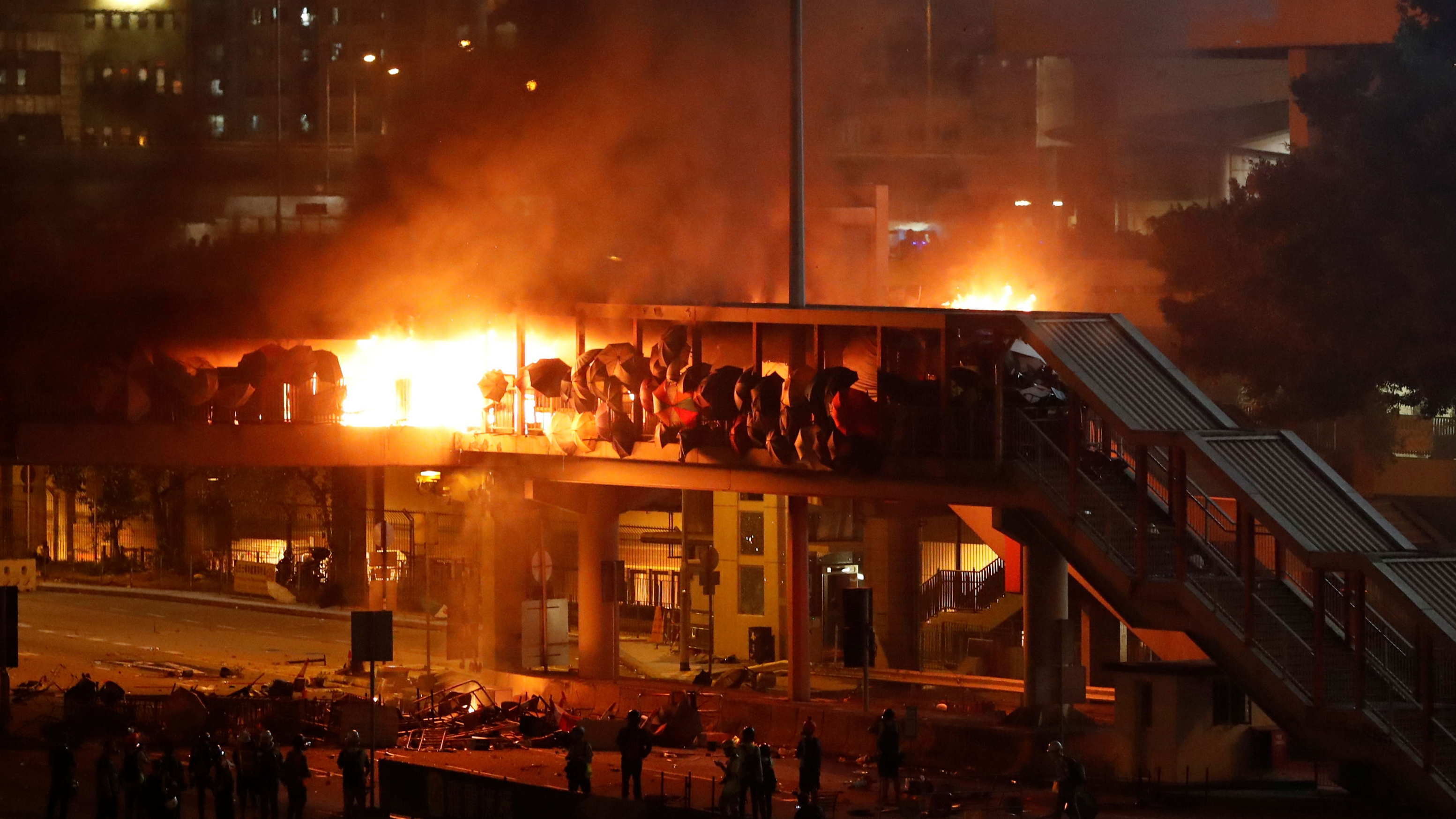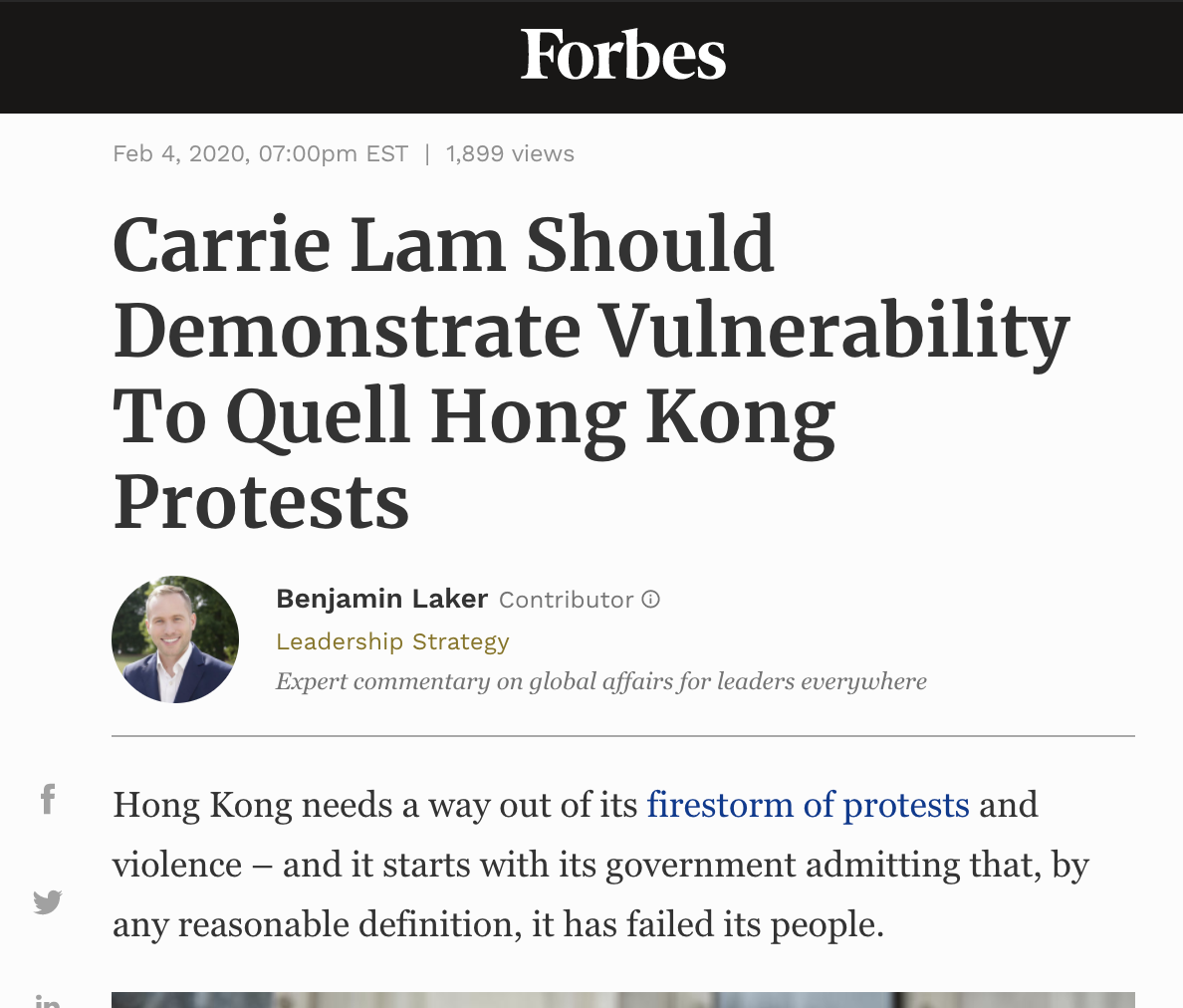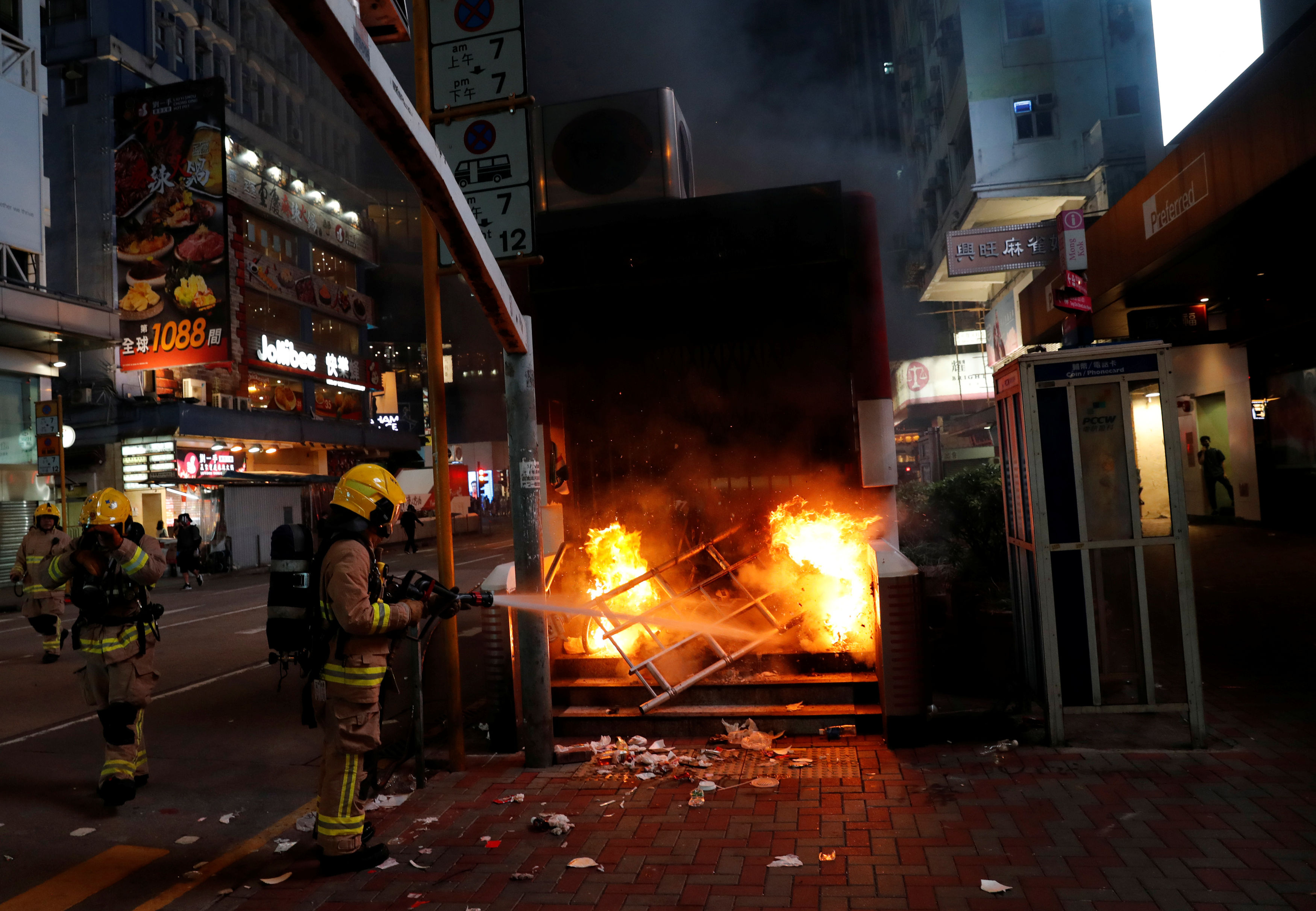
Editor's note: Timothy Kerswell is a research fellow at the Chinese University of Hong Kong (Shenzhen). He lived in Macao for seven years, working as an assistant professor at the University of Macao. The article reflects the author's opinions and not necessarily the views of CGTN.
American journalist Timothy McLaughlin once penned a hysterical article for the Atlantic, titled "Hong Kong is a Colony Once More," to mark the introduction of the National Security Law in Hong Kong. Amusingly, the story was published with the byline "With a far-reaching national-security law, overlords in a distant capital are again making decisions on the city's behalf."
While playing up geographical distance isn't uncommon to American journalists, perhaps we should expect better out of the media. I seriously doubt the validity of this "distance criteria" for effective rule. After all, the distance between Washington D.C. and Los Angeles far exceeds the distance between Beijing and Hong Kong, should we then say that Washington D.C. doesn't have sovereign rights over streets in Hollywood? The hypocritical application was yet another example of the extensive anti-China bias in reporting on Hong Kong in the past years.
The Western media often bends reality by framing an adversarial narrative between the Chinese government and Hong Kong residents. A Forbes article published on February 4, 2020, dismally concluded that "[Carrie] Lam, as a leader now resides between a rock and a hard place – she cannot alienate Beijing's government while at the same time she desperately needs to give some leeway to her people." This homogenous portrayal of Hong Kong society assumes support for the Hong Kong protests, and this significant bias is then furthered through the label of "pro-democracy" protests. Democracy might be the argument for representative government in some form, but in their drive to portray the Hong Kong protesters as beacons of democracy, Western media overlooks that the protests were anything but representative.

A screenshot of the Forbes article, which states that Lam "cannot alienate Beijing's government while at the same time she desperately needs to give some leeway to her people." /Forbes
A screenshot of the Forbes article, which states that Lam "cannot alienate Beijing's government while at the same time she desperately needs to give some leeway to her people." /Forbes
A report by the Chinese University of Hong Kong found that the overwhelming majority of participants in the 2019 protests were between the ages of 20 and 30. By contrast, the median age in Hong Kong as last reported in 2015 is around 43 and climbing. A harsh truth about the protest movement is that while many enjoy waving the British flag, they have little to no experience or understanding of colonial life in Hong Kong, nor are they the worst affected by the legacy of British colonialism.
One of the many negative legacies of British rule in Hong Kong was substantial poverty and a highly unequal society. In 2009, Hong Kong started comprehensively measuring poverty for the first time with the establishment of the Commission on Poverty. With an initial estimate of 20 percent of people below the poverty line, what's notable is that the elderly population had an estimated 30 percent poverty rate.
Successive governments responded by implementing several anti-poverty programs like the Comprehensive Social Security Assistance Scheme, Old Age Living Allowance Scheme, and the Working Family Allowance Scheme, and the poverty rate began to fall. Naturally, none of this information found its way into media discussions of the protests.
One of the more glaring omissions was the widespread destruction inflicted on public infrastructure in Hong Kong by violent protesters. As the most affordable transportation system in Hong Kong, the MTR provides a vital service for most Hong Kong residents. A majority public-owned institution, it is a true expression of democracy, providing an essential service in the public interest. However, it became the focal point for destruction by the 2019 rioters, and the MTR corporation estimated losses of HK$1.6 billion as a result.

A firefighter extinguishes fire burning at an entrance to Mong Kok MTR Station during protests in Hong Kong, China, October 27, 2019. /Reuters
A firefighter extinguishes fire burning at an entrance to Mong Kok MTR Station during protests in Hong Kong, China, October 27, 2019. /Reuters
How an expression of democracy leads to the destruction of public-owned infrastructure that common people rely on for their day-to-day existence is anybody's guess. Inexplicably, Western media blame Hong Kong authorities for these actions. The same Forbes article singles out Carrie Lam as "largely responsible for the destruction demonstrators have wrought on properties – including the Hong Kong legislature, which a mob of dozens bashed their way into, in a vandalism spree broadcast live around the world." Fair enough (not really), but whenever any destruction of public property occurs in the United States, I hope these journalists remember that by this logic it's their governors' fault.
The argument that China's central government is somehow involved in the colonization or exploitation of Hong Kong is similarly absurd. Let's consider the aforementioned argument that "Hong Kong is a Colony Once More." Unfortunately for this argument, the Hong Kong Special Administrative Region is given special treatment within China's political framework. Most notably as a Special Administrative Region, the authorities in HKSAR pay no taxes to China's central government, despite enjoying benefits such as defense, opportunities for investment, and recently, China's expertise in pandemic control. If China is really a colonizer, it's doing it wrong.
Entertaining the idea that Hong Kong has been, or could ever be, separate from China is another example of media bias. Apart from the illegitimate British governance of Hong Kong and its conquest through the two opium wars, Hong Kong has always been a part of China. The notion that China could somehow "colonize" or even "intervene in" Hong Kong, its sovereign territory, is as redundant as an argument that England colonizes London.
Hong Kong's food, water, infrastructure and economy are intricately linked to the Chinese mainland and the entire landmass of Hong Kong is geographically surrounded by Guangdong province. China exercising its sovereignty within the HKSAR is an entirely natural process, and the best news for Hong Kong residents is that China's plans for the development of the Greater Bay Area give them a central role in the region. It's about time the Western media woke up from its postcolonial hangover and get out of the way.
(If you want to contribute and have specific expertise, please contact us at opinions@cgtn.com.)

